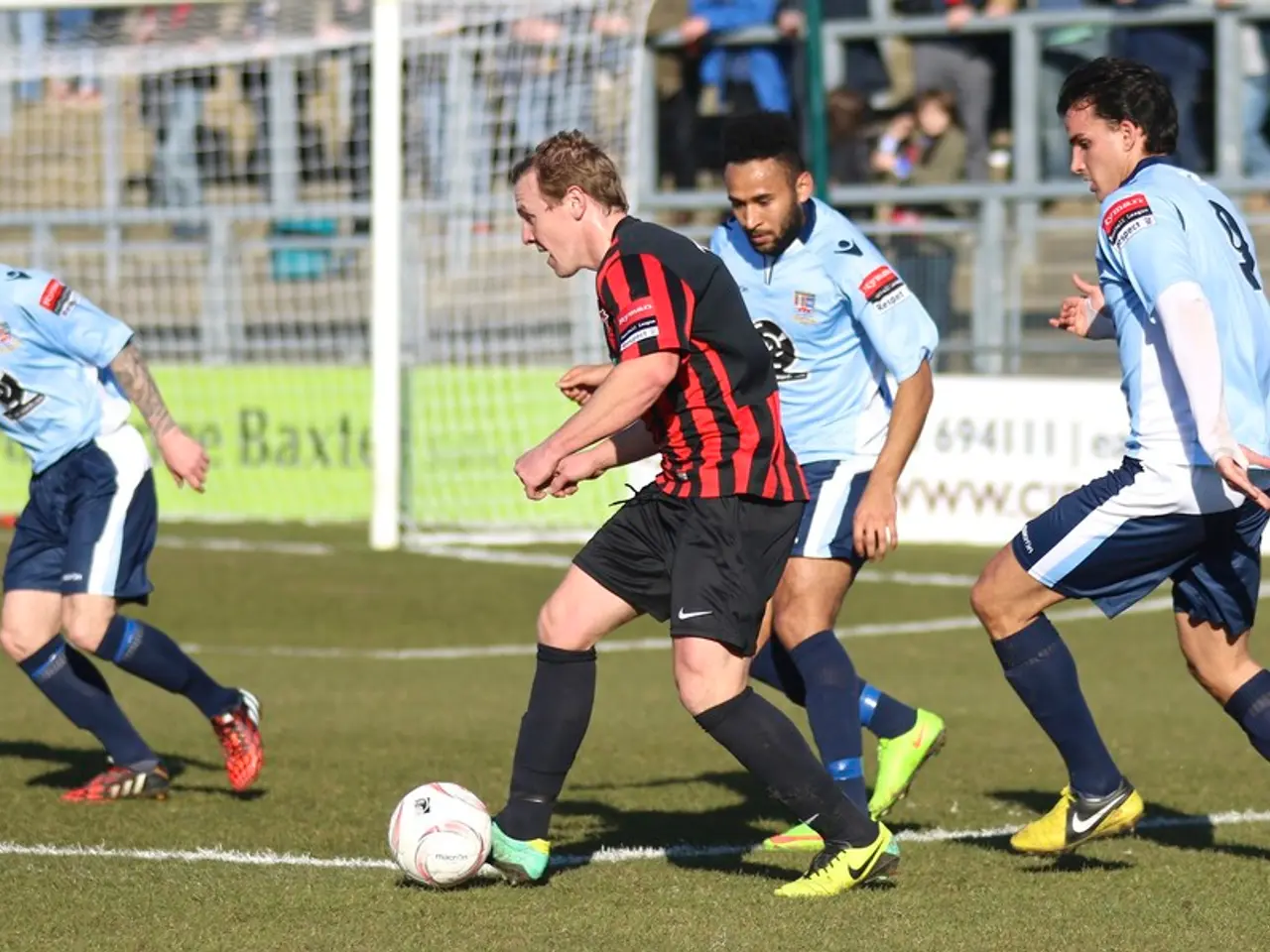Football pioneer's assertion: "Typically the sentiment was: Girls have no place in football!" - "Football should be exclusive to males!"
In the realm of sports, Anne Trabant-Haarbach, a 76-year-old German football pioneer, stands as a testament to resilience and determination. Born and raised on the German-Dutch border in Emlichheim, Trabant-Haarbach's love for football began in her childhood, playing exclusively with boys. However, her passion for the sport would face numerous challenges in post-war Germany.
The German Football Association (DFB) imposed a ban on women's football in 1955, citing concerns about the sport's effects on women's health and modesty. The ban, justified by declaring football inappropriate for women, stated that it could damage their "body and soul" and was "offensive and indecent" for public viewing. Despite this, women continued to play football unofficially, often facing police interference.
Trabant-Haarbach's journey in football took a turn when she pursued sports studies in Mainz. Through her studies, she found her way back to the sport and became an outstanding player at Bonner SC and Bergisch Gladbach. Her career took off during the first league years, playing for Bonner SC and SSG 09 Bergisch Gladbach, where she won numerous German championships.
The DFB's attitude towards women's football underwent significant transformations over time, influenced by various factors. The ban was lifted on October 31, 1970, partly due to the DFB's realization that if they did not institutionalize women's football, they might lose control over the sport entirely. However, initially after the ban was lifted, the DFB imposed restrictions on women's matches, such as reduced playing time and no studs allowed.
The formation of the national team followed the success of unofficial tournaments by German club teams like Bergisch Gladbach 09 in 1982, marking a significant shift towards formal recognition and support for women's football. Trabant-Haarbach led the DFB women's team when it played its first international match in 1982 and won 5-1 against Switzerland in Koblenz.
Despite the establishment of nationwide leagues in Germany, there was still no women's national team due to the DFB's slow progress. This was evident when the DFB was unable to send a national team to the unofficial World Cup in Taiwan in 1981. However, Trabant-Haarbach's perseverance paid off, as she led the team to a 5-1 victory against Switzerland in her first international match as the head of the German team.
Trabant-Haarbach ended her active career in 1983 and continued to coach for many years, working under conditions that were far from comparable to those in men's football. Despite the challenges, she is proud of the progress made in German sports and considers her generation of players to have made history.
Looking back, the persistence of women in playing football despite the ban, coupled with broader social movements, contributed to the eventual shift in the DFB's stance. The DFB's recognition of the need to control and institutionalize women's football to prevent it from being organized outside their framework was a key factor in lifting the ban and promoting the sport. The growing recognition of women's football globally and the successes of international competitions also pressured the DFB to adapt and support the sport more actively.
Today, the German women's national team has achieved notable successes, including winning the Women's World Cup in 2003 and 2007 and becoming record champions of the European Championship with eight titles. Clubs like FC Bayern have played a crucial role in promoting women's football, with Bayern founding its women's team in 1970, before the official ban was lifted.
At 76 years old, Trabant-Haarbach can now say that it was worth the effort to fight for women's football in Germany. Her journey serves as a reminder of the struggles faced by women in sports and the significant impact individuals can have in shaping the future of sports for generations to come.
The German Football Association (DFB) and the women's national team are key participants in the realm of sports and football. Being a pivotal figure in the revitalization of women's football in Germany, Anne Trabant-Haarbach played a significant role in the DFB, leading the team for their first international match against Switzerland in 1982.







